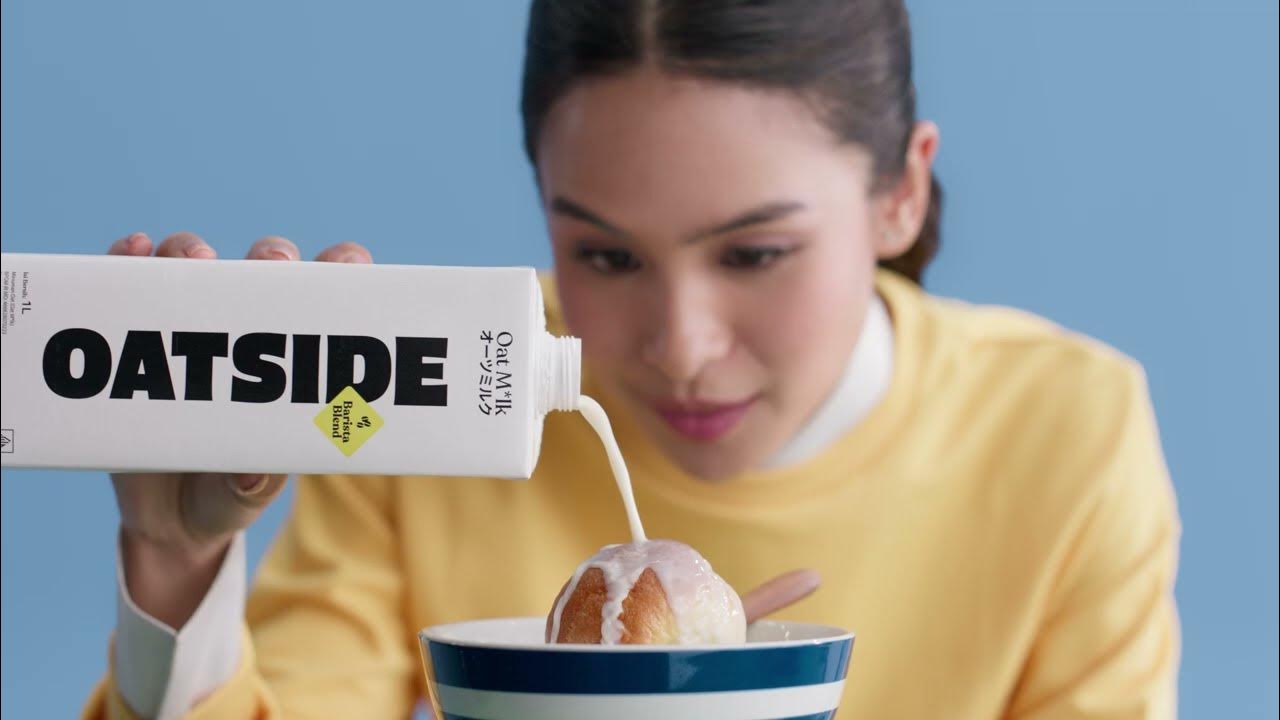IKLAN LAYANAN MASYARAKAT - RELISA (REMAJA PEDULI SAMPAH)
Summary
TLDRThis transcript captures a casual conversation centered around the complexities of waste separation and recycling. The participants discuss the challenges of sorting different types of waste—plastic, organic, and paper—and the steps involved in recycling, such as removing labels and cleaning bottles. A practical demonstration of these steps is also included. The discussion reflects the everyday struggles of maintaining proper waste disposal habits, with some humor and lighthearted banter, making the topic accessible and relatable to viewers.
Takeaways
- 😀 Sorting waste properly is important: plastic, organic, and paper need to be separated.
- 😀 Bottles should be cleaned before being disposed of in recycling bins.
- 😀 Labels on plastic bottles must be removed before disposal.
- 😀 The cap of plastic bottles must also be removed before recycling.
- 😀 After cleaning, plastic bottles should be squashed to save space in recycling bins.
- 😀 Waste sorting can be complicated, but it's important to stay organized.
- 😀 It's necessary to separate different types of waste, even when it's inconvenient.
- 😀 Understanding the recycling process helps reduce waste and improves sustainability.
- 😀 Participants discuss the challenges of sorting waste at home and emphasize the need for practice.
- 😀 It's important to follow the correct steps to ensure proper waste disposal and recycling.
Q & A
What is the main topic of the conversation in the transcript?
-The main topic of the conversation revolves around waste sorting, specifically how to properly separate plastic, organic, and paper waste, and the steps involved in recycling materials like plastic bottles.
Why is sorting waste into different categories important?
-Sorting waste into categories like plastic, organic, and paper is crucial for efficient recycling, as it ensures that each type of material is processed properly, reducing contamination and making recycling more effective.
What materials are mentioned for sorting in the transcript?
-The materials mentioned for sorting include plastic, organic waste, and paper.
What is the first step when preparing a plastic bottle for recycling?
-The first step in preparing a plastic bottle for recycling is to remove the bottle cap and the label.
How should the plastic bottle be cleaned before recycling?
-The plastic bottle should be cleaned thoroughly by washing it to remove any leftover contents, ensuring that it is free from dirt or food particles.
What should you do with the plastic bottle after cleaning it?
-After cleaning the plastic bottle, it should be crushed or compacted to save space and then placed in the appropriate plastic recycling bin.
What challenges are mentioned in the conversation regarding waste sorting?
-A challenge mentioned is the complexity of sorting waste correctly, especially when dealing with different types of materials and ensuring they are placed in the right bins, such as separating plastic, paper, and organic waste.
How are participants in the conversation engaging with the topic of waste sorting?
-Participants in the conversation are discussing the process of sorting waste, with some expressing confusion or frustration, while others provide guidance on how to handle materials like plastic bottles and other waste items.
What is the significance of removing the label from plastic bottles before recycling?
-Removing the label from plastic bottles before recycling is important because it helps to reduce contamination in the recycling process and ensures that the materials are properly sorted and processed.
What can be done if you find it difficult to sort waste at home?
-If sorting waste at home is difficult, it is helpful to educate oneself about the different types of waste and to create clear guidelines or systems for sorting materials like plastic, paper, and organic waste to make the process easier and more efficient.
Outlines

Cette section est réservée aux utilisateurs payants. Améliorez votre compte pour accéder à cette section.
Améliorer maintenantMindmap

Cette section est réservée aux utilisateurs payants. Améliorez votre compte pour accéder à cette section.
Améliorer maintenantKeywords

Cette section est réservée aux utilisateurs payants. Améliorez votre compte pour accéder à cette section.
Améliorer maintenantHighlights

Cette section est réservée aux utilisateurs payants. Améliorez votre compte pour accéder à cette section.
Améliorer maintenantTranscripts

Cette section est réservée aux utilisateurs payants. Améliorez votre compte pour accéder à cette section.
Améliorer maintenantVoir Plus de Vidéos Connexes

(Part 2) Menambahkan musuh, Mengatur nyawa |Tutorial Game Edukasi CONSTRUC 2

FILM PENDEK | HOAX (2021) - Juara Harapan 2 Jenjang PAUD/TK Tingkat Kabupaten Wonogiri

Netiquette Guide for Online Learning

Menyoal Sampah Kota Denpasar (Part 1) | Sapa Redaksi On Location

OATSIDE, Minum Langsung atau Jadi Kreasi Seru, Semua Enak! | #AhlinyaOatMilk

Amazon employees delivering with purpose throughout COVID-19, holiday season | Nightline
5.0 / 5 (0 votes)
